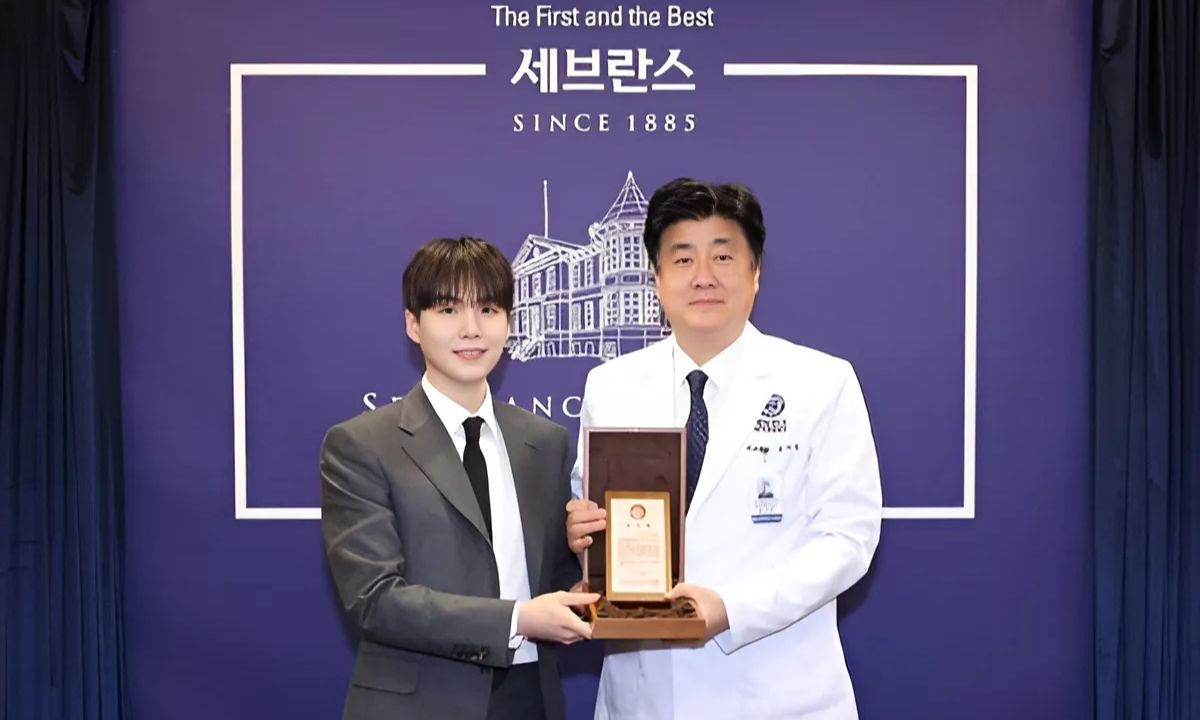BTS’ SUGA (Min Yoongi) has once again demonstrated his deep commitment to mental health advocacy — this time by taking a groundbreaking step to support children and adolescents with autism spectrum disorder (ASD). On June 23, South Korea’s Severance Hospital announced the creation of a dedicated treatment center for individuals with ASD, made possible through an extraordinary ₩5 billion donation from SUGA — the largest ever received from an artist in the hospital’s history.
The facility, named the Min Yoongi Treatment Center, officially broke ground at Jejungwon Hall and will serve as a multidisciplinary hub for both therapy and research. The center will provide comprehensive care focused on speech, psychological, and behavioral therapies, with an emphasis on long-term, individualized treatment for young people on the autism spectrum.
SUGA’s long-standing interest in mental health — especially youth depression — has driven much of his philanthropic work. Wanting to move beyond music into meaningful, lasting change, he began working with Professor Chun Geun-ah, a leading child psychiatrist at Severance Hospital, in late 2023. Their collaboration was rooted in a shared belief: current short-term interventions for ASD are not enough. What was needed was a specialized facility capable of offering sustained care.
Over months of dialogue and planning, SUGA and Professor Chun co-developed an innovative therapy program called MIND, which uses music as a tool to bridge emotional and social gaps for children with ASD.
MIND stands for:
- Music – Encouraging interaction through musical and sensory expression
- Interaction – Enhancing communication and building relationships
- Network – Learning to navigate social environments in group settings
- Diversity – Embracing individuality while fostering inclusion
Between March and June 2024, SUGA went beyond his financial contribution — participating directly in weekend therapy sessions. He played instruments alongside the children, taught them basic musical skills, and helped create an emotionally rich and interactive atmosphere. Many of the children, initially withdrawn or nonverbal, began showing signs of emotional connection, social interaction, and creative self-expression.
The early success of the MIND program has led to plans for expansion. Once the center is completed in September, the team will begin offering broader services — including ABA (Applied Behavior Analysis), speech therapy, and music-based treatment models. The center also plans to publish academic studies and run clinical trials to build the program’s scientific foundation and ensure its sustainability.
Professor Chun praised SUGA not only for his financial support but also for his heartfelt involvement. “His genuine care and months of hands-on volunteer work have left a deep impact,” she said. “SUGA’s dedication is helping shift the narrative around autism and is offering these children a path to live fuller, more integrated lives.”
Reflecting on his journey, SUGA said, “These past seven months have shown me just how powerful music is in helping children express their feelings and connect to the world. I’m grateful to have been part of their healing process. This isn’t the end — I’ll keep supporting efforts that bring these children closer to the communities they belong to.”
The Min Yoongi Treatment Center stands as a bold new chapter in SUGA’s legacy — one that blends compassion, creativity, and commitment to creating real-world impact.








